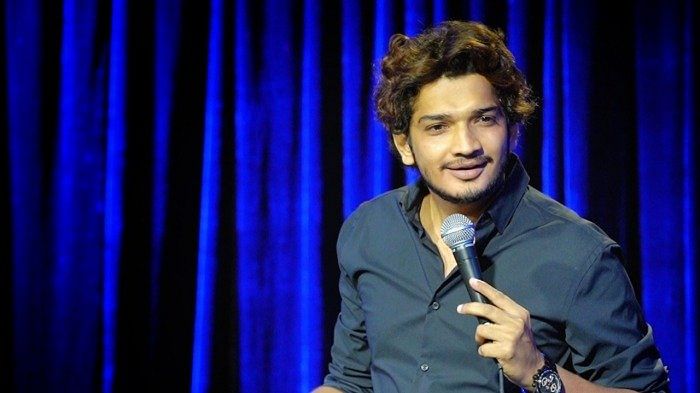
The primary role of the police in any country is to uphold and enforce laws, investigate crimes and ensure that people can conduct the business of their lives in safety and security. However, the police in India often act as though they have a slightly different view of their job description.
Last week, the police in Belagavi, Karnataka, asked leaders of the local Christian community not to hold prayer meetings in rented buildings or private houses, as they faced the threat of an attack by militant Hindu groups. The pastors were told that if they were attacked, the police would be unable to help them, and hence, it would be best if they prayed inside their churches.
Hindu fundamentalist groups such as the Bajrang Dal and Sri Ram Sene have been raising the temperature of their protests against the Christian church over alleged instances of conversion in Karnataka. On Monday, too, Hindutva goons tried to disrupt a Christian prayer meeting in Belur in Hassan district. However, instead of going after those threatening the community with violence, the police seem to have decided that it would serve the cause of peace and justice better if the ones being targeted were asked to make themselves scarce.
On Sunday, the same peace-keeping logic was applied to stand-up comic Munawar Faruqui's show in Bengaluru. The police wrote to the organisers, asking them to cancel the programme and said that "several organisations" were opposed to the show and that it could disturb "public peace and harmony which may further lead to Low (sic) & order problems".
Clearly, in the eyes of the law enforcement forces, the would-be protesters did not pose a threat to public order. Rather, the problem was Faruqui's show they were threatening to attack and the audience who had bought tickets to watch it. The police's response was once again to shut down the target of likely violence rather than ensure their safety, bow before the protesters' supposedly limitless power to cause mayhem, rather than go out and tackle them.
Right-wing groups have, of course, been hounding Faruqui since early this year. In January, he was arrested from a venue in Indore in Madhya Pradesh based on a complaint by the son of a state Bharatiya Janata Party (BJP) leader who claimed that the comedian was likely to make jokes that were insulting to Hindu gods. Though he never made those jokes and the police failed to furnish any evidence to that effect, the 29-year-old Faruqui was denied bail by the lower courts. He spent 37 days in custody — and was freed only after the Supreme Court granted him interim bail.
Since then, outfits such as the Bajrang Dal, Vishva Hindu Parishad and others have scuttled several of Faruqui's shows — in Surat, Mumbai, Vadodara, Raipur and elsewhere — by violent intimidation and threats of arson and vandalism. After his Bengaluru gig was cancelled, Faruqui said that as many as 12 of his shows were called off in the last two months. "Nafrat jeet gayi, artist haar gaya (Hatred has won, the artist has lost)," he wrote in an Instagram post and said that he was finally done being a comic.
It would be easy to describe the sustained campaign to decimate Faruqui's career as one more example of India's offence brigade taking umbrage at jokes and satirical remarks made by stand-up comics. Recently, comedian Vir Das was subjected to fierce trolling and police complaints as it was felt that he had portrayed the country in a negative light when he delivered a monologue on "two Indias" at his show in Washington DC. Over the years, several other stand-up comics have faced FIRs and virulent outrage because their jokes were deemed to have hurt some group's religious or cultural sentiments.
But the visceral hatred against Faruqui goes beyond a touchy, humourless people's inability to get a joke or laugh at a satirical takedown. It goes beyond the Pavlovian reaction of the congenitally thin-skinned to flare up at the slightest hint of criticism of the tribe and its beliefs and practices. Faruqui is not just any comedian — he is a comedian who belongs to a minority community. And the effort to permanently silence him and push him into obscurity is part of what has now become a systematic attempt to impose restrictions on certain groups and circumscribe an ever-tightening circle around them.
Whether it is withdrawing the permission to offer namaz in multiple places in Gurugram, or the police urging pastors in Karnataka to keep their flock in the churches and not pray outside, or denying Munawar Faruqui the right to practise his profession, or raising the bogey of 'love jihad' and demonising inter-faith relationships — they are all pieces in the larger design to edge certain communities out of the public space.
And the mob, driven by Hindutva outfits, is crucial to this campaign. It intimidates, it sets the narrative of hysterical propaganda against this or that hate object, and while the police, ever the handmaidens of their political masters, look the other way, it also hands them the excuse to constrict citizens' fundamental rights in the interests of preserving "public order".
The clause of "reasonable restrictions" on fundamental rights laid down in Article 19(2) to 19(6) of the Constitution was meant to serve as an exception, a brake to be applied by the state under grave and exceptional circumstances. Today, that exception is fast becoming the rule, and the "reasonable" restrictions are in danger of overshadowing the once sacred fundamental rights of citizens.
(Shuma Raha is a journalist and author)
Disclaimer: The views expressed above are the author's own. They do not necessarily reflect the views of DH.